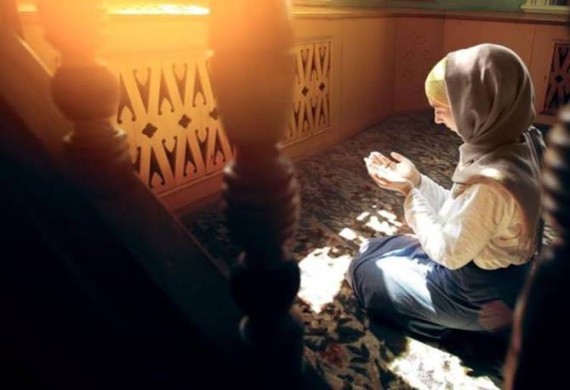
Women are allowed to enter mosques to perform namaz: AIMPLB to SC
By: WE Staff | Thursday, 9 February 2023
The Supreme Court was informed by the All India Muslim Personal Law Board (AIMPLB) that it is acceptable for women to enter mosques and perform namaz there. A Muslim woman is free to enter a mosque for prayers, according to the board, and she has the choice to exercise her freedom to use whatever facilities offered for prayers in a mosque.
This was stated by the AIMPLB in an affidavit submitted to the supreme court, which is now deliberating a case involving Muslim women entering mosques to perform namaz.
"It is asserted that the issues highlighted in the current petition do not affect state action. The 'Muttawalis' of the mosques regulate the religious rituals at the places of worship, which in this case are mosques, in a wholly private capacity "the affidavit read, which was submitted by lawyer M R Shamshad.
In a case submitted in 2020, one Farha Anwar Hussain Shaikh asked the Supreme Court to rule that it is unlawful and unconstitutional for Muslim women in India to be denied admission to mosques. The Supreme Court will probably hear the plea in March.
According to the affidavit, the AIMPLB can only provide advisory opinions based on Islamic principles because it is an organisation of specialists without any state authority.
It stated that the AIMPLB and the supreme court, for that matter, cannot interfere with the specific plans made for a place of worship that is entirely privately run for the purposes of adherents' religious activities.
According to the document, "it is claimed that admission of women into mosques for offering namaz inside mosques is permissible taking into consideration the stated religious books, doctrines, and religious beliefs of the adherents of Islam."
As a result, a Muslim woman is permitted to attend prayers in a masjid (mosque). According to the affidavit, she is free to exercise her right to use any amenities offered for prayer in a masjid.
The AIMPLB did not want to remark on any opposing religious views to this effect, it was stated.
According to the affidavit, Muslim women are not required by Islam to participate in the five daily congregational prayers or to offer the weekly Friday 'Namaz', while Muslim men are.
The Muslim woman is in a distinct position because, in accordance with Islamic law, she is entitled to the same religious reward (sawab) for worshipping as she chooses, whether in a masjid or at home.
No Islamic text, according to the affidavit, permits "free intermingling" of genders in any masjid.
"There are rumours that the Masjid An-Nabawi in Medina includes distinct areas or chambers for men and women. Men and women worshippers have designated and distinct areas in the vicinity of the Masjid An-Nabawi, which are separated by temporary barricades "It read.
According to the affidavit, there are temporary measures made by erecting barricades to create separation between male and female worshippers during the prayer when conducting namaz around the Kaaba in Mecca.
All worshippers, both men and women, "adhere voluntarily, strictly, and truly to the etiquettes of prayer, particularly no open inter-mixing of both sexes," it stated.


.jpg)



